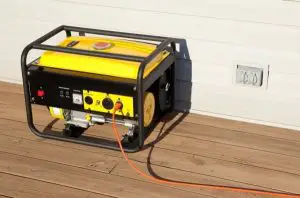The whole home generator vs other generator debate is one that is ongoing and does not necessarily have a clear winner. There are many factors to consider when making a decision about which generator is right for your home, including cost, fuel type, maintenance, and more. When it comes to whole-home generators, there are several things to keep in mind.
What size generator do you need to run a full house?
Running even the most vital home appliances, such as the freezer and the pump for your well, may be done with a generator that is rated between 5,000 and 7,500 watts. All of these appliances may be powered simultaneously by a 7500-watt generator.
How powerful are whole-house generators?
More powerful than standby generators, whole-house generators generally have a power output of between 22 and 48 kW. As a result of their larger-than-average engines, these generators are capable of operating without interruption or overheating for a much longer period of time.
Are full house generators worth it?
Installing a whole-house generator might be worth it if you work from home, endure regular power outages, keep large amounts of perishable food, or live in an area where heating or cooling is critical. With adequate fuel and sufficient maintenance, generators may operate for weeks.
Having a battery backup for your house is an alternative to using a generator. A battery pack may be used to store part of the extra energy generated by solar panels for usage at night. Batteries, on the other hand, may be charged from any source of energy.
Who makes the most reliable home standby generator?
The Generac Guardian 7209, a 24 kW standby generator, comes out on top overall. When it comes to backup power for homes, air-cooled generators are the most common option.
Related Questions and Answers
Should I choose a Generac or Kohler generator?
It may be tough to decide which one to buy, but this video should help:
How do I calculate what size generator I need?
There are mathematical formulas you can use to determine the output power and overall size you need. You’ll need a generator with at least 1400 watts to operate a small refrigerator, thus you’ll need a generator with that much power if you intend to live in your home.
How do I choose a generator for my home?
You should look for a generator that can operate for more than a few hours at half-load. The less often you have to replenish the generator, the longer it can operate. Keep in mind how many outlets you need and what kind they are before purchasing a generator. The weight of a portable generator is an issue that also needs to be considered. Heavy-duty generator cable sets are included with certain generators, so this can be a useful bonus.
How do you plug a generator into your house?
The gen cable is easily plugged into the generator’s 20- or 30-amp outlet. Starting at the other end, you may begin attaching more extension cables securely inside your home.
How often should you run a whole house generator?
At least once a year, a whole-house generator should be serviced and tested. Things like oil changes and tune-ups are just like for your automobile. Running the machine for 15 or 20 minutes once a month is a good idea as well.
Conclusion
Whole house generators and other generators have their advantages and disadvantages. Make sure you know how much power your home will need during an emergency, and how long you intend to run the generator before making your decision to purchase one.
The “Generac whole house generator” is a type of power generator that can be used to provide power for the entire home. Generac whole house generators are not as common as other types of generators, but they offer some advantages over them.
Related Tags
- whole house generator calculator
- best whole house generators consumer reports
- whole house generator cost installed
- natural gas whole house generator
- best standby generator

